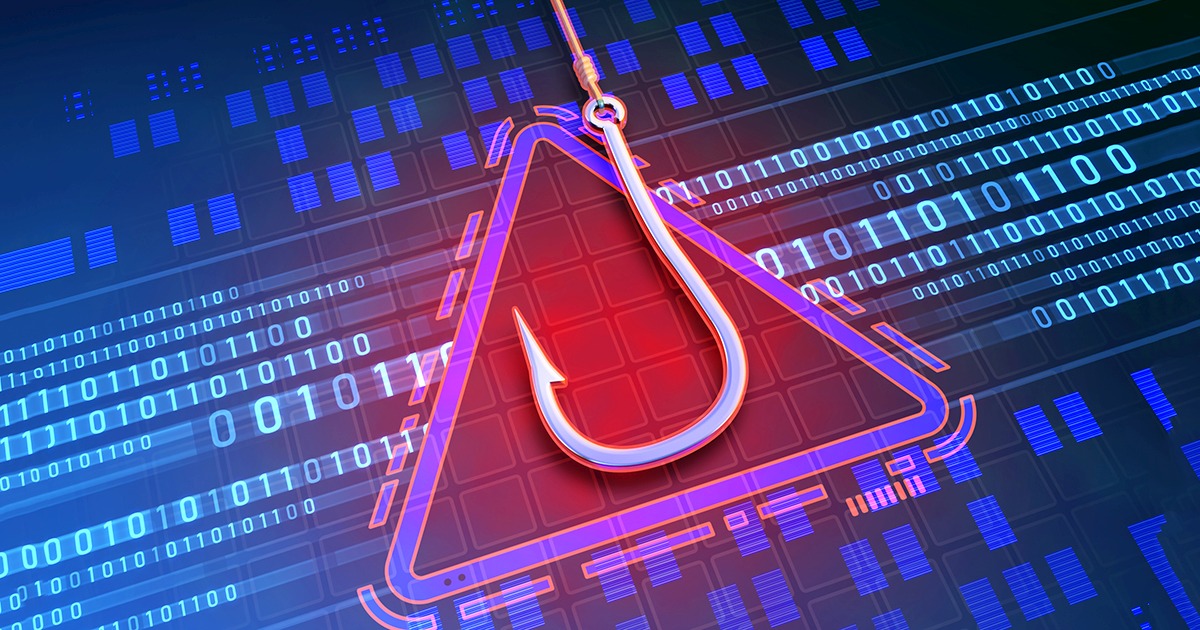
Aug. 18, 2021 – Almost two years ago, we cautioned attorneys to be on the lookout for sophisticated scams targeting lawyer trust accounts,1 and recommended utilizing the guidance published by the Office of Lawyer Regulation to avoid common trust account scams.2
In spite of the published resources and education on this topic by bar associations and legal authors across the country, scammers continue to successfully infiltrate lawyer trust accounts.3
This article explores two recent iterations of this scam, with the hope that continued education and shared stories by lawyers will help thwart the impact of these scams.
Common Patterns in Trust Account Scams
Trust account scams usually follow the same pattern. The attorney receives an email communication, usually from a Gmail account, from a representative of a prospective business masquerading as a legitimate business. The representative requests assistance with obtaining funds from another party, such as an outstanding debt or contract collection, and promises a generous fee for the attorney.
Once the attorney reaches out to the adverse party, typically a resolution is reached in a short period of time, and funds are quickly remitted to the attorney. Thereafter, the client immediately requests that the attorney disburse funds from the trust account minus the attorney fees.
If the attorney instantly remits payment, they risk losing those funds forever. Moreover, some financial institutions will make trust account funds automatically available, even before the funds have officially cleared.
While these types of scams follow the same pattern, usually local and legitimate businesses are targeted as the delinquent parties, in order to add to the believability of the scams.
Reporting Potential Trust Account Scams
We encourage attorneys to report potential trust account scams to:
- your malpractice insurance provider;
- Office of Lawyer Regulation – Trust Account Program Administrator;
- local law enforcement; and
- the Federal Bureau of Investigation.
Scam #1: Sale of Large Equipment
Another story from a Germantown attorney – who requested not to be named – reveals good advice: following up by contacting the business directly.
“Over the course of several days, I corresponded with someone I thought to be the CEO of a hospital in Louisiana seeking to sell MRI equipment to a hospital in Milwaukee. The scammer used a Gmail account and included the alleged hospital contact information, including a direct phone number, in their signature block,” explained the Germantown attorney.
“After exchanging emails and phone calls, I became suspicious and decided to contact my prospective client’s hospital directly. To my shock, I was informed by the hospital staff that they have received several hundreds of calls from other lawyers inquiring whether the proposed sales transaction and company representative were legitimate. I am glad I was able to spot this scam in the early stages before it ended up costing me more time and money,” the attorney said.
Also of Interest
How to Avoid Scams Targeting Lawyers 2021

Are you confident you can tell the difference between a legitimate inquiry from a prospective client and a potential scam?
Unfortunately, the latest scams targeting law firms aren’t always obvious. It can be easier to make a mistake than you might think, and unsuspecting attorneys from coast to coast are incurring six-figure losses.1 In an increasingly digital world, it’s more important than ever to take steps to protect your practice from falling victim to fraud.
This one-hour webcast will review how to stay vigilant when assisting in the transfer or collection of money. You’ll discuss:
- Precautions to take when accepting new clients
- Holding deposits in trust until funds clear
- The latest text message, voice, and email phishing scams
- How to safeguard against wire fraud
The latest scams don’t just target internet newbies. Learn to detect the warning signs and avoid getting involved in a questionable matter with help from How to Avoid Scams Targeting Lawyers.
How to Avoid Scams Targeting Lawyers 2021 will provide rapid answers to these questions and more.
Presenters: Dean R. Dietrich, Chair of the State Bar Committee on Professional Ethics; Travis J. Stieren, Program Administrator for the Office of Lawyer Regulation’s Trust Account Program; Christopher Shattuck, Law Practice Assistance Manager for the State Bar of Wisconsin. Presented by State Bar of Wisconsin PINNACLE.
- Webcast seminar: 1 CLE/LPM credit; members $89 | nonmembers $139
- Webcast Times: 12:00 – 12:50 p.m. CT
- Webcast Dates: Tuesday, Aug. 31; Friday, Sept. 10; Thursday, Sept. 16; Wednesday, Sept. 22; Tuesday; Sept. 28; Monday, Oct. 4; Saturday, Oct. 9
Learn more or register now.
Scam #2: Contract Collection
This story shows the length the scammers go to with details – and the lesson to conduct research if the proposal seems suspicious.
“A UK based company contacted my office from a Gmail address requesting my assistance with a contract collection matter involving a local company. I received alleged copies of the sales contract, correspondence between the prospective client and adverse company, bank statements, and wire transfers. The initial reason for contacting my law firm seemed suspicious, and I started conducting further research,” says Green Bay attorney Robert J. Miller.
“After conducting an internet search of the company and alleged representative, I found an article from the Lawyers’ Professional Indemnity Company of Ontario, Canada.4
The article published the identical email correspondence I received, except my email referred to a local business in my area as the purported defaulting party. I contacted the UK based company that confirmed the alleged representatives do not work for their company and have been trying a different version of this scam for years,” Miller said.
Avoiding Scams
If you receive a suspicious email from a prospective business client and their email address is hosted through a free email service, like Gmail, Yahoo, or Microsoft, instead of a .com business email address, inform the prospective client that you will be contacting them directly through the phone number listed on their official website.
 Christopher C. Shattuck, Univ. of La Verne College of Law 2009, M.B.A. U.W.-Oshkosh 2015, is manager of
Practice411™, the State Bar’s law practice assistance program. If you have questions about the business aspects of your practice, call (800) 957-4670.
Christopher C. Shattuck, Univ. of La Verne College of Law 2009, M.B.A. U.W.-Oshkosh 2015, is manager of
Practice411™, the State Bar’s law practice assistance program. If you have questions about the business aspects of your practice, call (800) 957-4670.
Calling the business directly will typically reveal whether the alleged company representative works at the company or whether others have called about the alleged representation.
Another good strategy involves informing the prospective client that you will not remit any trust account funds until all financial institutions responsible for processing the funds have reported the funds are clear and ready for disbursement.
Understanding your financial institutions deposit and disbursement policies, especially as they relate to making funds provisionally available, can also help inform the process and make sure funds are not disbursed before they have cleared.
Not all scams will follow the same pattern and use an email address from a free email service provider. Unfortunately, scammers are sophisticated and have the ability to make any phone number appear on your caller ID,5 impersonate legitimate companies and create false job advertisements,6 and utilize computer generated audio to imitate another person.7
While it is difficult to maintain a list of the ongoing and ever-evolving scams, education of the patterns scams follow can help educate your staff and identify potentially suspicious behavior.
Training materials are freely and readily available for you and your staff.8 Also consider attending continuing legal education on this subject, such as
How to Avoid Scams Targeting Lawyers 2021 from State Bar of Wisconsin PINNACLE®.
Conclusion: Educate Yourself
Scammers depend on successful trust account scams to fund their livelihoods, but do not let trust account scams impact your livelihood. Take steps to educate yourself and staff members about common trust account scams. Implement initial client verification steps and check processing policies that address common vulnerabilities.
If you take the time to investigate suspicious clients at the forefront, you will save time from working on fictitious matters that will not result in payment and might result in significant financial harm.
Endnotes
1See Christopher C. Shattuck,
Scams are Gaining in Sophistication: Are You Protected?,
InsideTrack, Sept. 18, 2019.
2SeeScams Targeting Lawyers and Trust Accounts, wicourts.gov.
3See e.g., Robert J. Ambrogi,
Law Firm Snared in $312K Email Scam Loses Lawsuit to Recover from Bank,
LawSites, May 21, 2020; Joanna Herzik,
Scams Continue to Target Texas Attorneys,
Texas Bar Blog, June 18, 2021; The Practice Resource Center of the Florida Bar,
Frauds Targeting Attorney Trust Accounts, Mar. 5, 2020.
4SeeEquipment purchase scam using the name Fredrick Wright, July 7, 2021.
5See Federal Trade Commission,
Caller ID Spoofing, March 17, 2021.
6See Brian Krebs,
How to Tell a Job Offer from an ID Theft Trap, KrebsonSecurity.com, May 21, 2021.
7See Jesse Damiani,A Voice Deepfake Was Used To Scam A CEO Out Of $243,000, Forbes, Sept. 3, 2019.
8See previously cited materials and the
Wisconsin Law Firm Self-Assessment.
